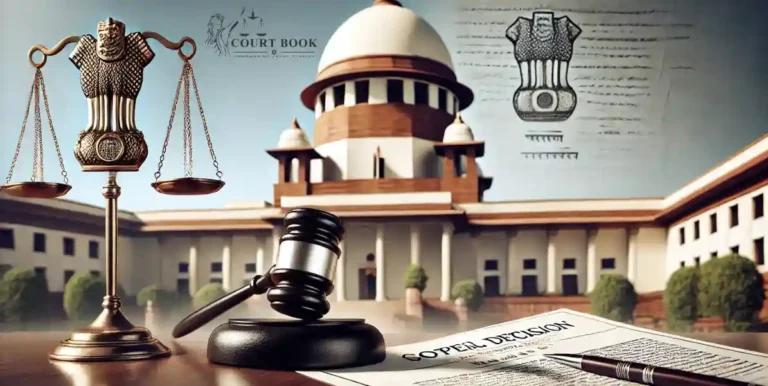The Supreme Court of India recently acquitted a jeweler, Nandkumar Babulal Soni, who had been convicted under Section 411 of the Indian Penal Code (IPC) for allegedly possessing stolen property in connection with the ₹6.7 crore Vijaya Bank fraud case. The Court ruled that merely possessing stolen goods is not sufficient for conviction under Section 411 unless the prosecution can prove that the accused had knowledge or reason to believe that the property was stolen.
Background of the Case
The case revolved around a financial fraud at Vijaya Bank's Nasik branch in 1997. The fraud involved fake Telegraphic Transfers (TTs) amounting to ₹6.7 crores, which were credited to a fictitious account under the name "M/s. Globe International." The funds were systematically withdrawn using bogus demand drafts and were allegedly used to purchase gold bars.
The Central Bureau of Investigation (CBI) conducted an investigation, leading to multiple arrests, including that of Nandkumar Babulal Soni, a jeweler accused of receiving the gold bars procured with the fraudulent funds. The Trial Court convicted him under Section 411 IPC and ordered the return of the seized gold bars. However, the High Court upheld his conviction while overturning the order to return the gold, directing its confiscation by the state.
Following this, Soni appealed to the Supreme Court.
The Supreme Court, comprising Justices BR Gavai, Prashant Kumar Mishra, and KV Viswanathan, reviewed the case and found that the prosecution failed to establish key elements required for conviction under Section 411 IPC.
"To convict under Section 411 IPC, the prosecution must prove:
- That the stolen property was in possession of the accused.
- That someone else had possession of the property before the accused received it.
- That the accused had knowledge or reason to believe that the property was stolen." – Supreme Court
The Court ruled that the prosecution was unable to conclusively link the gold bars found in Soni’s possession to the fraudulently acquired assets. Additionally, there was no evidence proving that he had knowledge that the gold bars were obtained through illegal means.
The Supreme Court referred to the case of Trimbak vs. State of M.P (AIR 1954 SC 39), reiterating that for a conviction under Section 411 IPC, the prosecution must prove beyond reasonable doubt that the accused knowingly possessed stolen property.
Further, the Court cited Kamal vs. State (NCT of Delhi), stating:
"Suspicion, however strong, cannot replace proof beyond a reasonable doubt. Circumstantial evidence must conclusively establish guilt."
Read Also:- Supreme Court Grants Bail to YSRCP Leaders in TDP Office and Naidu Residence Attack Cases
- The prosecution failed to prove that Soni knew the gold bars were linked to fraudulent transactions.
- The identity of the seized gold was not conclusively established as stolen property.
- The High Court’s reliance on circumstantial evidence was insufficient for conviction.
- Since the prosecution did not complete the chain of evidence, the benefit of the doubt was granted to the appellant.
The Supreme Court allowed the appeals filed by Nandkumar Babulal Soni and set aside his conviction and sentence under Sections 120B and 411 IPC. It further ordered the return of the seized 205 gold bars to him, stating:
"Since the seized gold bars were recovered from the appellant, he is entitled to their possession. We direct that the gold bars be handed over to Nandkumar Babulal Soni."
Case Title: NANDKUMAR BABULAL SONI VERSUS THE STATE OF MAHARASHTRA & ORS. ETC. ETC.















